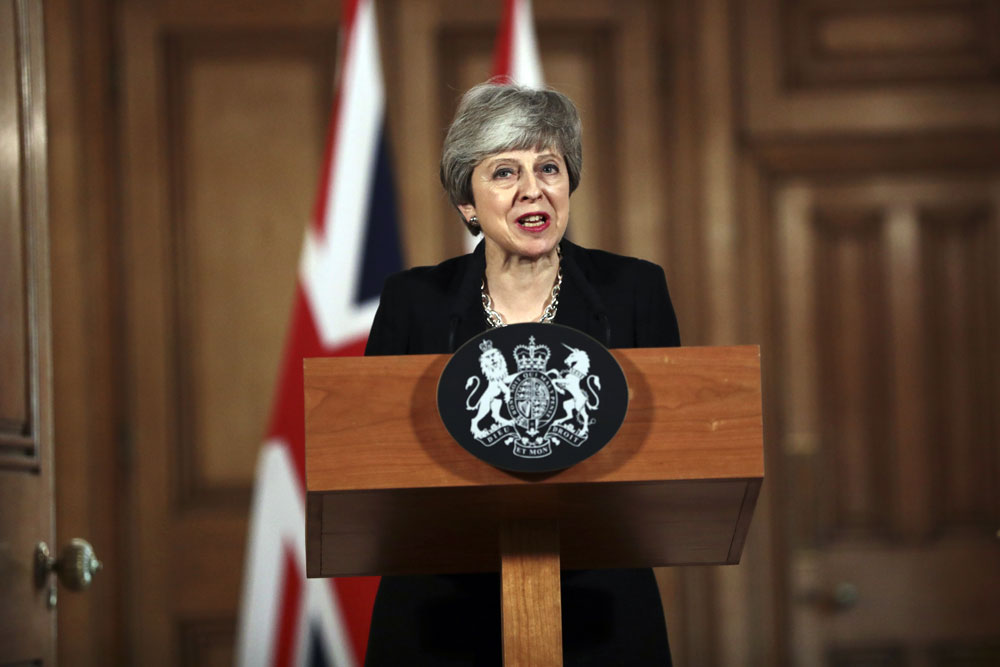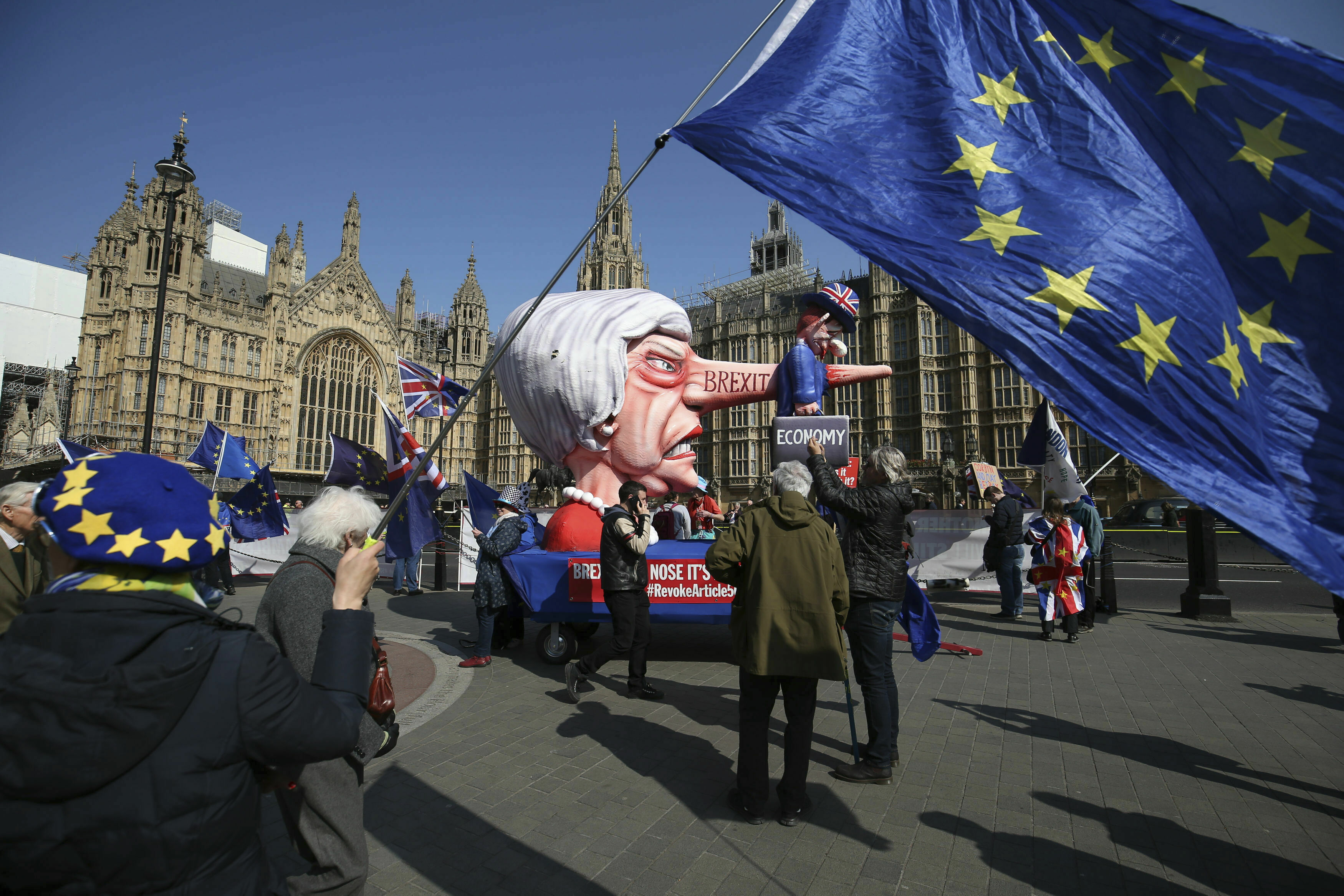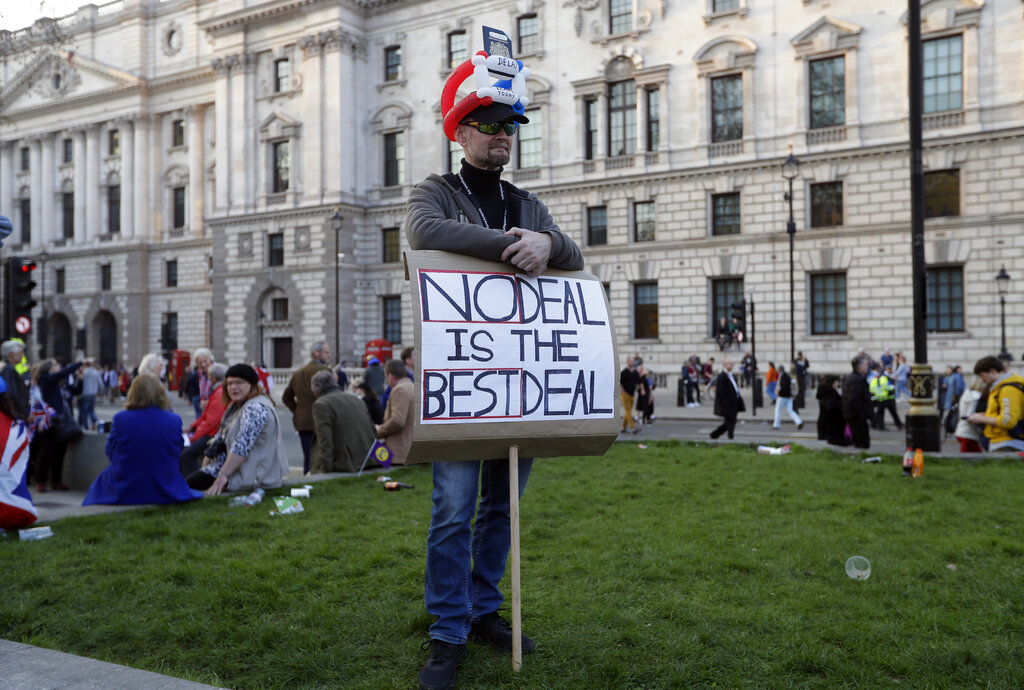Theresa May is said to be considering bringing back her withdrawal agreement with the EU for a fourth vote in the Commons, even though her Brexit deal has been rejected by MPs on three occasions by margins of 230 (January 15), 149 (March 12) and 58 (March 29).
This has prompted the satirical magazine Private Eye to take its cue from the tale of Robert Bruce and the spider and poke fun at Britain’s beleaguered Prime Minister on the cover of its current issue: “If at first you don’t succeed, try, try, try, try, try, try, try, try, try, try, try, try, try, try, try, try, try, try, try, and try again.”
However, the Prime Minister’s failure to break the Brexit impasse is no laughing matter. Research by the British Chambers of Commerce suggested that exports, orders, investment and cash flow were all being hit by the uncertainty over Brexit, as well as rising business costs and a slowing global economy.
Its director general Dr Adam Marshall said: “Our findings should serve as a clear warning that the ongoing impasse at Westminster is contributing to a sharp slowdown in the real economy across the UK. Business is hitting the brakes — hard.
“These are some of the weakest figures we’ve seen in nearly a decade, and that’s no coincidence. The prospect of a messy and disorderly exit from the EU is weighing heavily on the UK economy, and must still be avoided.”
On Tuesday May convened a lengthy “crisis meeting” of her cabinet to find a way forward, following Monday night’s rejection by the Commons of four motions aimed at finding a compromise. Last week eight motions were rejected.
A call for a customs’ union after Brexit, tabled by the former Tory chancellor Ken Clarke, was defeated by just three votes on Monday evening.
A referendum on any deal was rejected by 12 votes, and the Common Market 2.0 plan, tabled by former Tory minister Nick Boles, lost by 21 votes.
Boles left the chamber after making a dramatic statement in a voice choked with emotion: “I have given everything to an attempt to find a compromise that can take this country out of the European Union while maintaining our economic strength and our political cohesion. I accept I have failed. I have failed chiefly because my party refuses to compromise. I regret, therefore, to announce I can no longer sit for this party.”
While some on the Opposition benches applauded, one MP could be heard saying: “Oh Nick, don’t go, come on.”
He later tweeted that would now “sit as an independent progressive Conservative”.
A fourth motion, cancelling Brexit to prevent a no-deal scenario, was defeated by 101 votes.
The “indicative” votes by MPs was taken after another unruly night in the Commons, with semi-naked climate change protesters having to be forcibly ejected by security guards.
MPs have control of proceedings in the Commons for a third round of indicative voting on Wednesday. It Britain chooses to remain closely aligned to the customs union and the Single Market, it will probably preclude any free trade agreement with countries such as India.
May now has until 12 April — Brexit Day — to seek a longer extension to the negotiation process to avoid a no-deal Brexit on that date.
On April 10, there will be an emergency summit of EU leaders to consider any UK request for a further extension.
Speaking in Brussels, EU chief Brexit negotiator Michel Barnier said: “If the UK parliament does not vote in favour of the withdrawal agreement in the coming days only two options would remain. Leaving without an agreement or requesting a longer extension of the Article 50 period.”
European parliament Brexit coordinator Guy Verhofstadt said that Wednesday, when MPs may have a third attempt at reaching a majority through indicative voting, was the “last chance to break the deadlock or face the abyss”.
The EU warned on Tuesday that Britain could be heading for a potentially disorderly exit in just 10 days time as May met ministers to thrash out ways to break the protracted the Brexit deadlock. The impasse has already delayed Brexit for at least two weeks.












